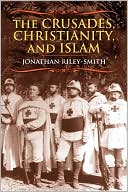Category Books
- Fiction Books & Literature
- Graphic Novels
- Horror
- Mystery & Crime
- Poetry
- Romance Books
- Science Fiction & Fantasy
- Thrillers
- Westerns
- Ages 0-2
- Ages 3-5
- Ages 6-8
- Ages 9-12
- Teens
- Children's Books
- African Americans
- Antiques & Collectibles
- Art, Architecture & Photography
- Bibles & Bible Studies
- Biography
- Business Books
- Christianity
- Computer Books & Technology Books
- Cookbooks, Food & Wine
- Crafts & Hobbies Books
- Education & Teaching
- Engineering
- Entertainment
- Foreign Languages
- Game Books
- Gay & Lesbian
- Health Books, Diet & Fitness Books
- History
- Home & Garden
- Humor Books
- Judaism & Judaica
- Law
- Medical Books
- New Age & Spirituality
- Nonfiction
- Parenting & Family
- Pets
- Philosophy
- Political Books & Current Events Books
- Psychology & Psychotherapy
- Reference
- Religion Books
- Science & Nature
- Self Improvement
- Sex & Relationships
- Social Sciences
- Sports & Adventure
- Study Guides & Test Prep
- Travel
- True Crime
- Weddings
- Women's Studies
The Crusades, Christianity, and Islam » (New Edition)

Authors: Jonathan Riley-Smith
ISBN-13: 9780231146241, ISBN-10: 0231146248
Format: Hardcover
Publisher: Columbia University Press
Date Published: September 2008
Edition: New Edition
Author Biography: Jonathan Riley-Smith
Jonathan Riley-Smith, Dixie Professor Emeritus of Ecclesiastical History at the University of Cambridge, is the author of eight books, including The Knights of St. John in Jerusalem and Cyprus, c. 1050-1310; The Feudal Nobility and the Kingdom of Jerusalem, 1174-1277; What Were the Crusades?, third edition; The First Crusade and the Idea of Crusading; The Crusades: A History, second edition; and The First Crusaders, 1095-1131.
Book Synopsis
The Crusades were penitential war-pilgrimages fought in the Levant and the eastern Mediterranean, as well as in North Africa, Spain, Portugal, Poland, the Baltic region, Hungary, the Balkans, and Western Europe. Beginning in the eleventh century and ending as late as the eighteenth, these holy wars were waged against Muslims and other enemies of the Church, enlisting generations of laymen and laywomen to fight for the sake of Christendom.
Crusading features prominently in today's religio-political hostilities, yet the perceptions of these wars held by Arab nationalists, pan-Islamists, and many in the West have been deeply distorted by the language and imagery of nineteenth-century European imperialism. With this book, Jonathan Riley-Smith returns to the actual story of the Crusades, explaining why and where they were fought and how deeply their narratives and symbolism became embedded in popular Catholic thought and devotional life.
From this history, Riley-Smith traces the legacy of the Crusades into modern times, specifically within the attitudes of European imperialists and colonialists and within the beliefs of twentieth-century Muslims. Europeans fashioned an interpretation of the Crusades from the writings of Walter Scott and a French contemporary, Joseph-François Michaud. Scott portrayed Islamic societies as forward-thinking, while casting Christian crusaders as culturally backward and often morally corrupt. Michaud, in contrast, glorified crusading, and his followers used its imagery to illuminate imperial adventures.
These depictions have had a profound influence on contemporary Western opinion, as well as on Muslim attitudes toward their past andpresent. Whether regarded as a valid expression of Christianity's divine enterprise or condemned as a weapon of empire, crusading has been a powerful rhetorical tool for centuries. In order to understand the preoccupations of Islamist jihadis and the character of Western discourse on the Middle East, Riley-Smith argues, we must understand how images of crusading were formed in the nineteenth and twentieth centuries.
Table of Contents
Introduction 1
Ch. 1 Crusades as Christian Holy Wars 9
Ch. 2 Crusades as Christian Penitential Wars 29
Ch. 3 Crusading and Imperialism 45
Ch. 4 Crusading and Islam 63
Conclusion 79
Notes 81
Bibliography 103
Index 117
Subjects
 Comparative Religion
Comparative Religion  Christianity - Comparative Studies
Christianity - Comparative StudiesChristianity
 Comparative Religion
Comparative Religion  Islam - Comparative Studies
Islam - Comparative StudiesChristianity
 Islam
Islam  Islam - Comparative Studies
Islam - Comparative StudiesChristianity
 All Religion
All Religion  General & Miscellaneous Religion
General & Miscellaneous ReligionChristianity
 All Religion
All Religion  Islam
IslamHistory
 European History
European History  Medieval History
Medieval HistoryHistory
 Military History
Military History  Ancient & Medieval Military History
Ancient & Medieval Military HistoryHistory
 Military History
Military History  Middle Eastern Conflicts
Middle Eastern ConflictsHistory
 Middle Eastern History
Middle Eastern History  Crusades - History
Crusades - HistoryHistory
 Religious History
Religious History  Christianity
ChristianityHistory
 Religious History
Religious History  General & Miscellaneous Religion
General & Miscellaneous ReligionHistory
 Religious History
Religious History  Islam
IslamReligion Books
 Comparative Religion
Comparative Religion  Christianity - Comparative Studies
Christianity - Comparative StudiesReligion Books
 Comparative Religion
Comparative Religion  Islam - Comparative Studies
Islam - Comparative StudiesReligion Books
 Islam
Islam  Islam - Comparative Studies
Islam - Comparative StudiesReligion Books
 All Religion
All Religion  General & Miscellaneous Religion
General & Miscellaneous ReligionReligion Books
 All Religion
All Religion  Islam
IslamChristianity
 Christianity
Christianity  Comparative Religion
Comparative ReligionChristianity
 Christianity
Christianity  Islam
IslamChristianity
 Christianity
Christianity  All Religion
All ReligionNonfiction
 History
History  European History
European HistoryNonfiction
 History
History  Middle Eastern History
Middle Eastern HistoryNonfiction
 History
History  Religious History
Religious HistoryNonfiction
 Religion
Religion  Comparative Religion
Comparative ReligionNonfiction
 Religion
Religion  Islam
IslamNonfiction
 Religion
Religion  All Religion
All ReligionReligion Books
 Christianity
Christianity  Comparative Religion
Comparative ReligionReligion Books
 Christianity
Christianity  Islam
IslamReligion Books
 Christianity
Christianity  All Religion
All Religion
